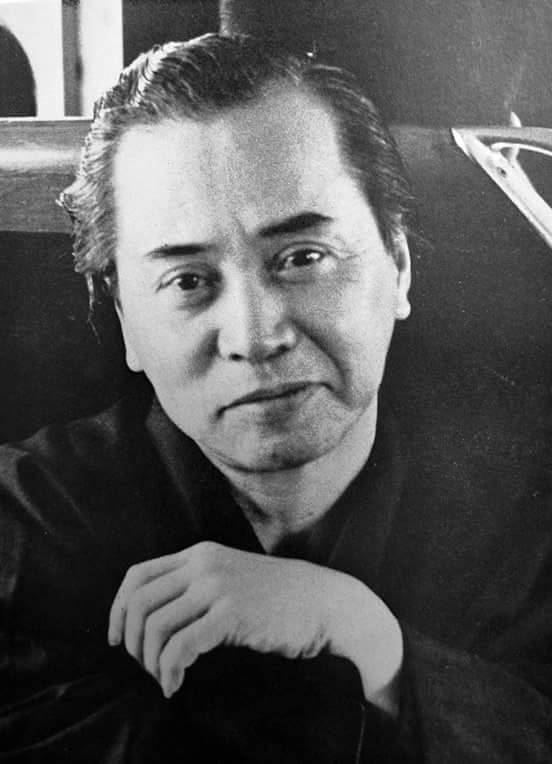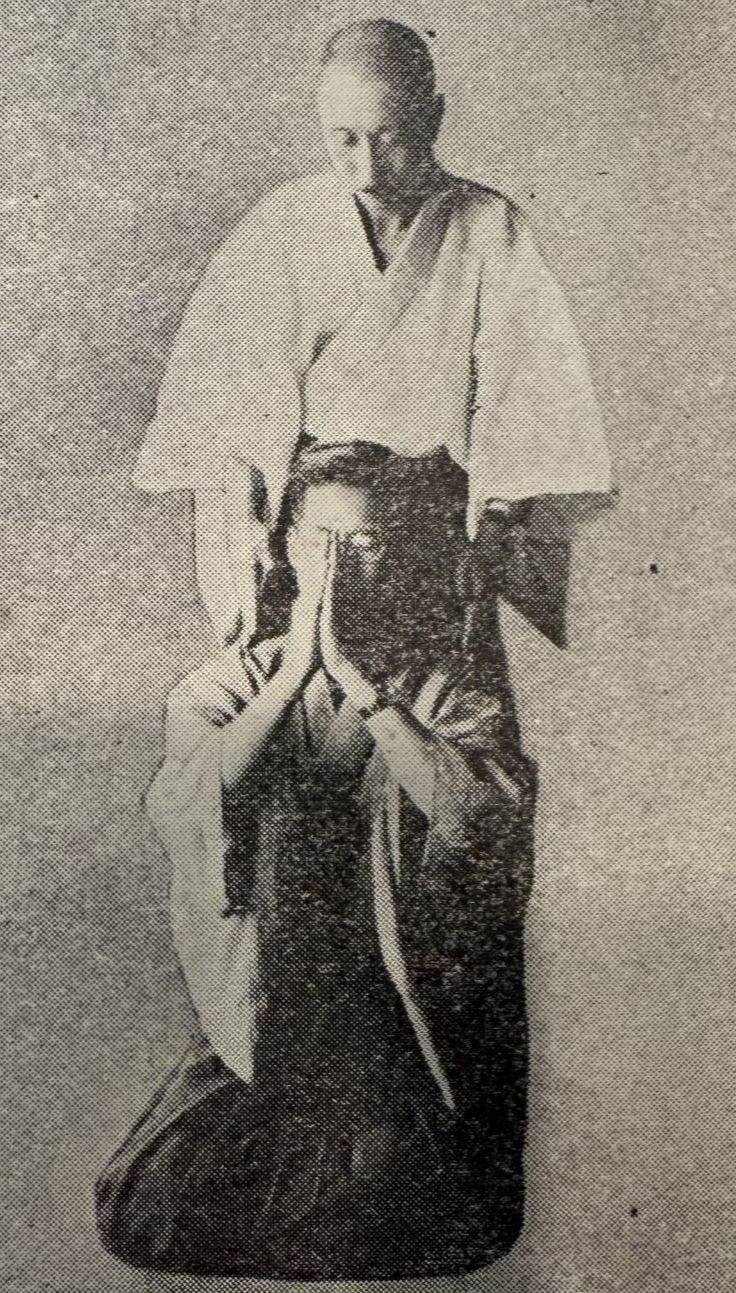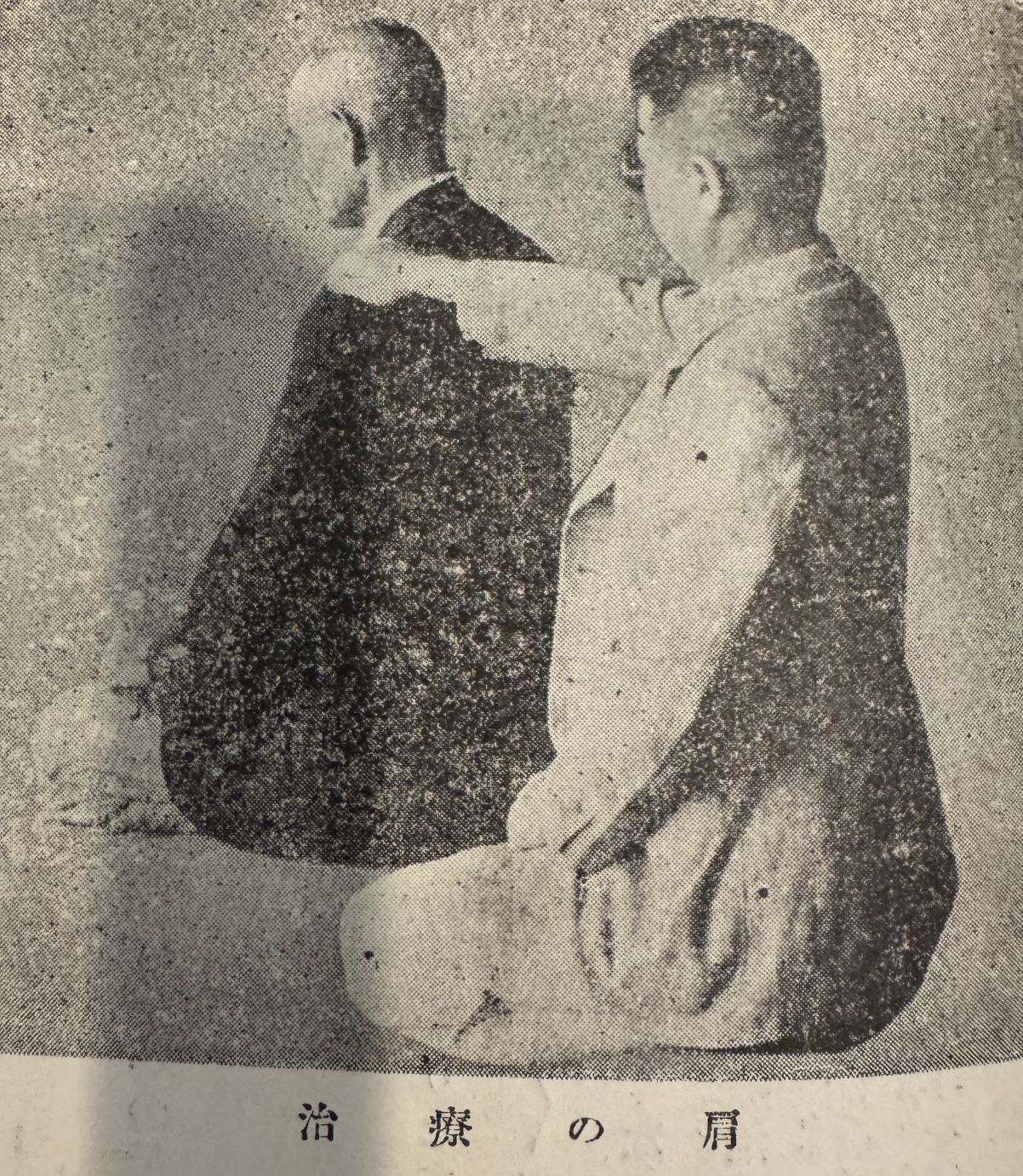“It’s no exaggeration to say that the most important aspect of human life is not the exchange of things, but the exchange of Ki (energy).”
「人間の生活で一番重要なものは、物の交換でなくて、気の交流であるといっても過言ではない。」
— Noguchi Haruchika (野口晴哉)
Noguchi Haruchika, a Japanese healer, educator, and the founder of Seitai (整体), once said:
“It’s no exaggeration to say that the most important aspect of human life is not the exchange of things, but the exchange of Ki (energy).”
He emphasized the importance of cultivating awareness of the body’s subtle responses and believed that true health arises not through control, but through sensitivity, vitality, and harmony.
Noguchi’s work centered on the idea of Ki no kōryū (気の交流) - the exchange of energy - as more fundamental to human life than the exchange of material goods. His insights laid the foundation for many modern Japanese energy practices and continue to influence the fields of natural healing and somatic education today.
The exchange of Ki lies at the heart of all energy practices - flowing within us, between us, and throughout the world around us.
It is how we connect, how we heal, and how we often rediscover gratitude in our lives.
At Flow & Form, our energy arts are rooted in this principle of Ki no kōryū - the living, breathing exchange of energy that supports wholeness, connection, and presence.

Reiki and Reijutsu
Reiki (霊気) is an old Japanese term meaning “spiritual energy.”
Today, especially in the West, it is most widely recognized as a hands-on healing practice founded by Usui Mikao in the early 20th century. However, during Usui’s time, the term referred more broadly to subtle or universal life energy.
He originally named his method Usui Reiki Ryōhō (臼井霊気療法) - which, in Japanese, simply means “Usui’s Therapy Using Spiritual Energy.”
Reijutsu (霊術) translates to “spiritual arts” and was a widely used term in early 20th-century Japan. It described a diverse array of spiritual, mental, physical, and energetic practices.
Usui’s healing system was, at the time, also recognized as a form of Reijutsu.
Practices commonly classified under Reijutsu included:
-
Shintō-based disciplines
-
Esoteric Buddhist (Mikyō) practices
-
Syncretic Shintō–Mikyō systems
-
Hypnosis and mesmerism
-
Traditional yoga and pranic healing
-
Ninjutsu (particularly its esoteric and psychic aspects)
-
Western influences such as New Thought and Christian Science
-
Psychotherapy
-
Chiropractic and osteopathy
Many of these systems were eclectic in nature, blending traditional Japanese spirituality with newly introduced Western therapies and esoteric methods.
Reijutsu served as a cultural bridge - linking ancient traditions with modern innovations in spiritual and energetic practice.

Reihō (霊法): A Different Approach to Energy Practice
Reihō (霊法) translates as “spiritual method.”
It draws from the foundations of what we now call Reiki, along with other spiritual practices that were present in early 20th-century Japan - collectively known as Reijutsu (霊術), or spiritual arts.
As a certified Reiki Master/Practitioner, I’ve spent years researching and practicing many of the modalities that existed during Usui Mikao’s time. My goal has been to better understand the roots and meanings behind the diverse elements found in modern Reiki.
Through this exploration, I discovered that many techniques and principles now associated with Reiki also appear across a wide range of traditional spiritual systems. At the same time, I encountered modern adaptations of Reiki that seemed to lose touch with the original essence - often because the deeper context behind certain practices had been forgotten or overlooked.
This gap isn’t usually intentional. It’s more often a result of the limited historical and cultural knowledge that continues to shape much of today’s Reiki education.

Why Call It Reihō, Not Reiki?
What I teach and share is the result of personal research and long-term practice.
Out of respect for the Reiki tradition as it is most commonly understood and practiced in the West, I’ve chosen not to present my work as just another form of Reiki.
Reihō is not a new style of Reiki.
It is a broader practice framework rooted in traditional Japanese energetic principles - drawing from multiple lineages and disciplines, including Reiki, but not limited to it.
One of the key differences is that Reihō is intentionally structured without attunements (Reijū) or formal lineage.
Instead of external initiation, spiritual connection and energetic sensitivity are cultivated through direct, repeatable practice.
While Reihō respects the role of attunement in traditional systems, it also acknowledges that similar methods exist across many classical modalities. By exploring these diverse approaches, Reihō offers a more inclusive and grounded understanding of energy transmission.
Rather than following the typical Shoden–Okuden–Shinpiden course structure, Reihō is taught as a single, integrated path - focused on daily cultivation, direct experience, and long-term embodiment.
The emphasis is not on levels or titles, but on consistent practice, internal awareness, and a living connection to Ki.
What You’ll Learn in Reihō
Reihō is a way of cultivating energetic presence in your daily life.
Through this course, you’ll learn practices that help you:
-
Deepen your sensitivity to Ki
-
Develop grounded energetic presence - without relying on attunements or formal rituals
-
Practice self-healing and hand-healing methods rooted in traditional Japanese energy arts
-
Explore meaningful parallels between Reiki, Reijutsu, and other classical modalities
-
Build a consistent, sustainable practice that supports long-term growth
Reihō guides you to cultivate a relationship with energy that is direct, intuitive, and embodied.
Who Is Reihō For?
Reihō is for those who are seeking a deeper, more grounded relationship with energy - not through titles or levels, but through direct experience, daily practice, and personal integration.
It’s especially suited for:
-
Reiki practitioners who feel something essential is missing or wish to reconnect with the roots beyond formal certification
-
Spiritual seekers drawn to Japanese traditions but not aligned with rigid systems or lineage-based hierarchies
-
Meditators, martial artists, and healers looking to deepen their internal sensitivity and energetic presence
-
Anyone interested in cultivating Ki through breath, posture, awareness, and embodied practice - with or without prior experience
Reihō does not require previous training in Reiki or any other energy modality.
It welcomes those who are open, curious, and committed to learning through lived experience.
